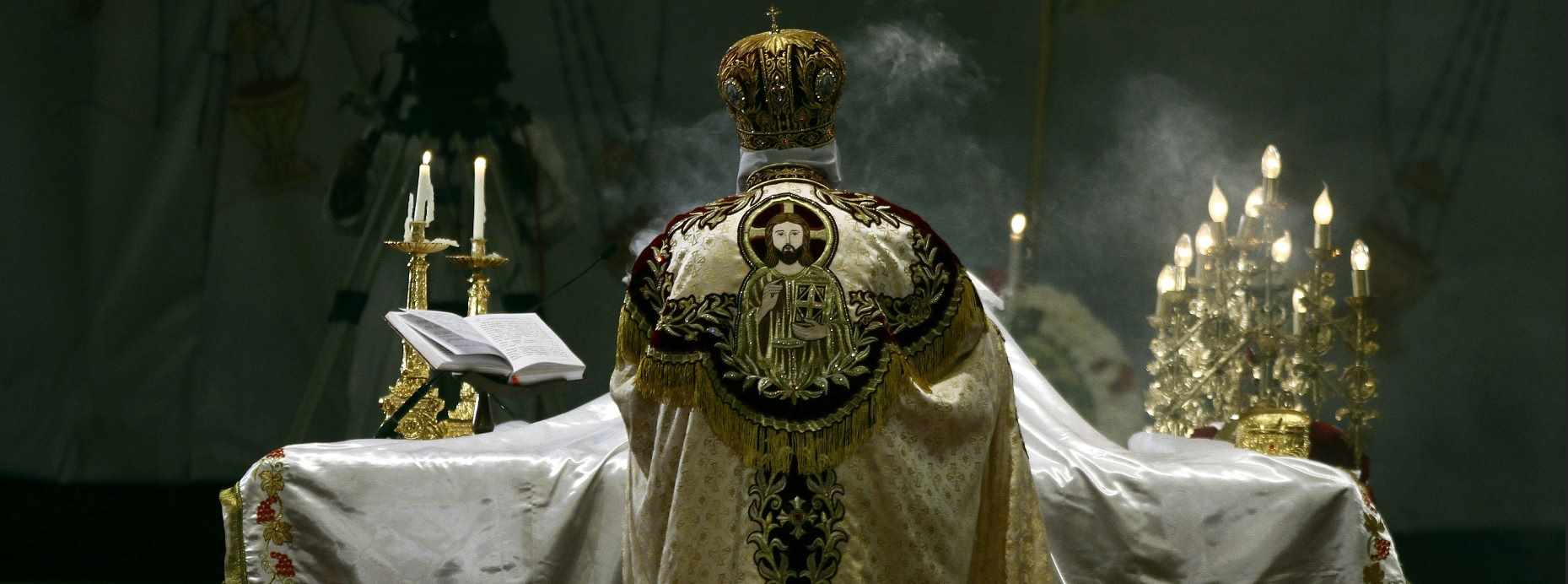Attending Church Etiquettes
Etiquettes of Attendingِ Church And Preparing for Communion
The Church is the house of God, and the embassy of heaven on earth. The more respect, reverence, and attention we give to God when we are in church, the more benefit we reap from the time we spend there. Also, the more we are well prepared for communion, the more we benefit from it. Let’s look at some guidelines that help us in this regard:

First: The Etiquette of attending church:
-
We should pray the following Psalms on the way to church:
- Lord, who shall dwell in your tabernacle… (Psalm 14, Matins Prayer).
- I was glad when they said to me… (Psalm 121, Vespers).
-
When entering the church, we should pray the following Psalm:
- How beloved are Your dwellings, O Lord… (Psalm 83 prayer of the sixth hour)
- One thing I asked from the Lord… (Part of Psalm 26, Matins Prayer).
- I left my eyes to You... (Psalm 122 Vespers).
- Early arrival to church.“I love those who love me, and those who seek me diligently will find me.” (Proverbs8:17).
- We must completely refrain from talking or laughing while at church because the Master is present. If it is necessary, we should speak sparingly, in a soft voice, and for a spiritual purpose. Let’s not forget that the liturgical prayer is a journey of repentance that needs to be matched with calmness, reverence and concentration.
- We must adhere to modesty in clothing so that we don’t cause distractions or stumble of others. Tight, short, or revealing garments are not appropriate for the house of God, or rather they are inappropriate for the daughters of Christ under any circumstances. It is also important for women and young ladies to cover their head during prayers in the church or at home. This is a form of humility before God just like the angels who cover their faces before God. Doing so, hides the earthly glory (the glory of a woman is her hair) in order to seek the glory of God… (1 Corinthians 11:13).
- We must participate in prayer not to be merely audience or passive listeners. We must also stand up unwaveringly and not to move around during the liturgy.
- To focus in prayer, we may want to use the Liturgy book and take part in the congregation’s responses. During the prayers of the priest, we should engage ourselves silently with our hearts and minds.
Second: Getting ready for communion:
- Sincere repentance through fervent prayer that should follow a close review of one’s soul in the light of the commandments of the Gospel.
- Confessing sins before God in the presence of the priest, to receive the absolution and forgiveness.
- To be prepared by abstaining from food and drink starting at midnight of the night before. The abstinence period should be at least nine hours.
- Refrain from conjugal relationships between husband and wife starting at sunset of the night before communion, to the sunset after communion.
- Coming early to the liturgy, at the beginning of the offertory, but no later than the reading of the Gospel of the Liturgy.
- He who is in animosity with others, should not partake of communion because it is impossible to receive forgiveness unless we forgive those who trespass against us (Matthew 6:15). But if someone has enmity against us and closes the doors of reconciliation with us, it is sufficient to forgive them and pray for them to cleanse our heart, and then we proceed to communion.
- We should pray before and after communion. We must also not leave the church until the priest dismisses the liturgy by spraying the water and says: Go in peace.
Finally, let’s remember that St. Macarius the Great once said to his children, the monks, after the liturgy: “flee brethren, flee.” One of them asked: “Why should we flee, father, and we are in the wilderness, far from everyone?!” The Saint placed his hand over his own mouth and said: “From this, you flee...!” They understood that he meant to flee from the sins of the tongue which can cause us to lose the wonderful grace that we receive through the partaking of the holy sacraments.